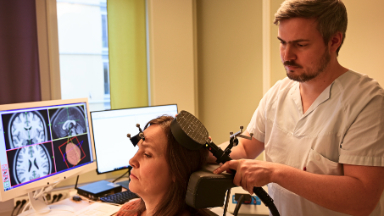New Research: Migraines Originate in the Brain’s Sleep Center
Waking up with the sensation of someone hammering your head with a sledgehammer is a common experience for migraine sufferers, and new research suggests that migraines originate in the brain’s sleep center.
A team of researchers from NTNU and other European universities has discovered that changes in sleep patterns can significantly impact whether or not an individual experiences a migraine attack. Dr. Martin Syvertsen Mykland, a researcher and specialist physician at the Neurology Clinic at Olavs Hospital, explains these findings.
Significant Strain on the Body:
Even slight sleep deprivation during a migraine attack affects the brain similarly to how it affects someone without migraines who has not slept at all.
“There is a sudden change in how the brain functions right when the headache attack starts. But exactly where this sudden change comes from and why it happens is something we have not yet been able to show, and something we will be looking at in the coming months and years,” explains Dr. Mykland.
These findings were recently presented at the European Academy of Neurology (EAN) 2024.

Doctor and researcher Martin Syvertsen Mykland hopes they can contribute to new and more targeted treatment against migraines. Photo: Kim L'Orange Sørensen / NTNU